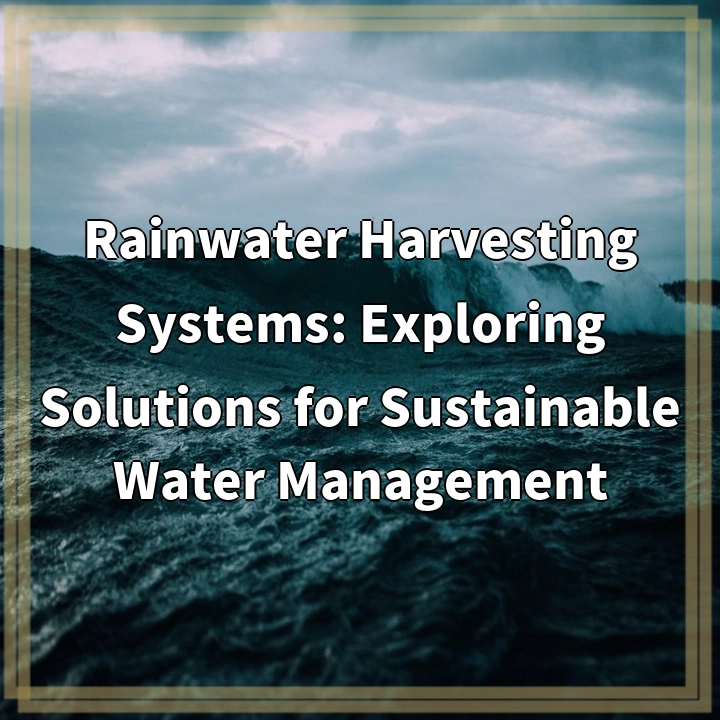
What is Rainwater Harvesting Systems?
Rainwater harvesting systems are innovative solutions for collecting and storing rainwater for various uses, such as irrigation, drinking water, and household applications. This practice involves the collection of rainwater from rooftops, surfaces, or landscape areas, channeling it through gutters, and storing it in tanks or underground reservoirs for later use. The collected rainwater can be treated or used directly, providing an alternative source of water that can supplement traditional water supply systems.
Real-World Problems Associated with Rainwater Harvesting Systems
Rainwater harvesting systems offer numerous benefits, but they are not immune to challenges and obstacles. It is important to be aware of these real-world problems to effectively implement and manage such systems:
1. Water Quality Concerns
One of the significant challenges in rainwater harvesting systems is ensuring water quality. Rainwater collected from rooftops or other surfaces can contain pollutants, debris, and contaminants. It is crucial to implement appropriate filtration and treatment systems to ensure that the harvested water is safe for use. Regular maintenance and monitoring are essential to prevent the buildup of bacteria, algae, or other harmful substances.
2. Limited Storage Capacity
The storage capacity of rainwater harvesting systems can pose a limitation, particularly in regions with erratic rainfall patterns. If the system’s storage capacity is insufficient to accommodate heavy rainfall events, the excess water may go to waste. This necessitates careful planning and sizing of storage tanks or reservoirs to ensure optimal use of collected rainwater and minimize losses.
3. System Maintenance and Operation
Proper maintenance and operation are crucial for the long-term functionality and effectiveness of rainwater harvesting systems. Regular upkeep, inspections, and cleaning are required to prevent clogging, blockages, or damage to the collection and conveyance components. Additionally, educating system users on the proper management practices and ensuring their active participation is essential.
4. Regulatory and Legal Considerations
In some areas, implementing rainwater harvesting systems may be subject to specific regulations, permits, or legal considerations. These can include restrictions on the use of harvested rainwater, requirements for water quality testing, or limitations on system size and location. Familiarizing oneself with the local regulations and ensuring compliance is essential to avoid potential legal issues.

Solutions for Rainwater Harvesting Systems
1. Water Quality Management
Implementing effective water treatment and filtration systems can address water quality concerns in rainwater harvesting systems. Incorporating mesh filters, sedimentation tanks, and UV disinfection can help remove pollutants and ensure safe water for various uses. Regular testing and maintenance of these systems are also essential.
2. Optimal Storage Planning
To overcome limited storage capacity, careful planning and sizing of storage tanks or reservoirs is necessary. Assessing the area’s average rainfall and estimating the required storage capacity can help optimize the system’s design. Additionally, considering options for overflow management or linking with other water sources can further enhance water availability.
3. Regular Maintenance and Operation
Establishing a maintenance schedule and ensuring proactive system management are crucial. Regular inspections, cleaning of gutters and filters, and repairs of any damages or leakages can help maintain system functionality. Educating system users on best practices, such as proper rainwater use and maintenance, promotes long-term sustainability.
4. Understanding Local Regulations
Before implementing rainwater harvesting systems, it is important to research and comply with local regulations and legal considerations. Meeting permit requirements, understanding water usage restrictions, and following guidelines for system design and installation ensures adherence to local laws and avoids potential legal issues.















